Photographs: B Mathur/Reuters Tony Joseph
In his Independence Day address, Prime Minister Manmohan Singh blamed the lack of an ingredient called "consensus" for slow economic growth.
The precise words he used were: "As far as creating an environment within the country for rapid economic growth is concerned, I believe that we are not being able to achieve this because of a lack of political consensus on many issues."
Most people heard this statement and thought that the prime minister, as usual, was trying to deflect blame for the dramatic slowdown in growth under his watch in the second term of the United Progressive Alliance - from 9.5 per cent half a decade ago to 5.3 per cent right now - by pointing out the difficulties of our fractious democracy.
...
Has Sonia Gandhi killed economic growth?
Image: Manmohan Singh.Photographs: B Mathur/Reuters
But they are missing the point. Many things follow from the prime minister's seemingly innocuous statement, whether he is conscious of them or not.
First of all, since most economic laws are made by majority decision in Parliament, and the ruling United Progressive Alliance has no shortage of numbers, one can safely conclude that the lack of consensus that the prime minister complains about is not a general nation-wide malaise, but a specific problem within his own alliance.
And pray, whose responsibility is it to create a consensus within the alliance? The chairperson's, of course. And who is the chairperson? Congress President Sonia Gandhi.
In other words, Manmohan Singh could be saying as plainly as he can, without bringing the house down on himself, that anyone looking to pin responsibility for the slowing growth should look at Gandhi and not him.
...
Has Sonia Gandhi killed economic growth?
Image: A view of the Bombay Stock Exchange.Photographs: Danish Siddiqui/Reuters
Sonia Gandhi never took upon herself the job of selling economic reforms even to her own partymen, forget about the UPA.
Just think: when was the last time you heard Gandhi speaking passionately about economic growth - of encouraging new business investments, or building roads, ports and power plants, or unleashing "animal spirits", as Manmohan Singh would put it? Never.
That is because for Sonia Gandhi, growth is a given; what she worries about instead is distribution, and distribution alone.
If you think of the UPA as a household, Dr Singh has to make and deliver the food, so that Gandhi can decide how to distribute it, with the help of the 12-member National Advisory Council, of which she is the chairperson.
...
Has Sonia Gandhi killed economic growth?
Image: A broker looks at stocks.Photographs: Stringer/Reuters
This is how she described the arrangement in a speech in September last year: "Under our prime minister's leadership, the economy has moved on to a much higher growth path. It is this high economic growth that has enabled us to fund our social welfare programmes and schemes."
In the last two years, the NAC, which is comprised mostly of social activists, has sent 24 letters to the government, of which 10 are about how to spend money on various welfare programmes such as the Food Security Bill or MNREGA.
The rest are a mixture of rights legislation and social reform legislation (for domestic workers, the disabled and the minorities, etc). A lot of the work of the NAC is useful, but its mandate leaves no one in doubt that for the Congress party, NAC's primary political purpose is to think up schemes to dole out money that will keep its constituency happy.
...
Has Sonia Gandhi killed economic growth?
Image: A grocery shop owner counts rupees in Ahmedabad.Photographs: Amit Dave/Reuters
I doubt if the NAC would worry enough to write a single letter to the government even if growth came down to zero, because that is not its outlook - despite the fact that the world over, growth is the single biggest driver of poverty reduction.
And that leaves Prime Minister Manmohan Singh high and dry. He is expected to cook up a growth rate of 9 per cent or so to fund the grand welfare programmes that the party and the NAC keep dreaming up. But he cannot do that unless he can open up markets, keep private investment flowing in (whether Indian or foreign), and keep the fiscal deficit low.
This requires taking tough political decisions, whether they involve opening up markets such as retail or pension funds, or cutting subsidies such as of fuel or fertiliser.
...
Has Sonia Gandhi killed economic growth?
Image: Workers spread maize crop for drying at a wholesale grain market in Chandigarh.Photographs: Ajay Verma/Reuters
And Sonia will not put her political capital to use for building a consensus on any of these issues, because that would damage her political positioning and put the party's vote at risk.
Worse, she could not or would not even put her political capital to use to keep some of the most corrupt characters out of Manmohan Singh's cabinet, which has led to the scams and the consequent vitiation of the business environment and investment slowdown.
So to put it in a nutshell, Manmohan Singh is mostly right when he points the finger at Sonia for not providing him the basic ingredient he needs to cook up a fantastic growth broth.
...
Has Sonia Gandhi killed economic growth?
Image: A salesman arranges a gold necklace inside a jewellery showroom in Kochi.Photographs: Sivaram V/Reuters
But why mostly, and not wholly? Because what is ailing Indian economy today is not just lack of tough policy decisions, but also poor management that has led to many large projects in the infrastructure sector being stuck.
And Manmohan Singh has no one to blame but himself and his team for that. Why are we talking about growth this week, when the headlines are all about corruption? That is because growth is where the bigger tragedy lies. The latest bunch of CAG reports mention a loss of about $70 billion to the exchequer over many years and in some cases, many decades.
And what is the loss involved in the slowdown in growth from 9.5 to 5.3 cent? $78 billion in a single year. So if the growth rate stays at 5.3 per cent for three years, the loss will be about $234 billion.
...
Has Sonia Gandhi killed economic growth?
Image: A boy carries recycled mustard oil tin containers from a roadside workshop in Kolkata.Photographs: Rupak De Chowdhuri/Reuters
The money that is lost to the exchequer through corruption is not fully lost to the country; it goes to companies and most of it will get invested, generating employment.
But the money that is lost due to a slowdown in growth rate is lost forever without anyone anywhere being the better for it. Sonia and Manmohan will both have to share the blame, in that order.
A Hindi version of this piece appeared in Dainik Bhaskar on August 20

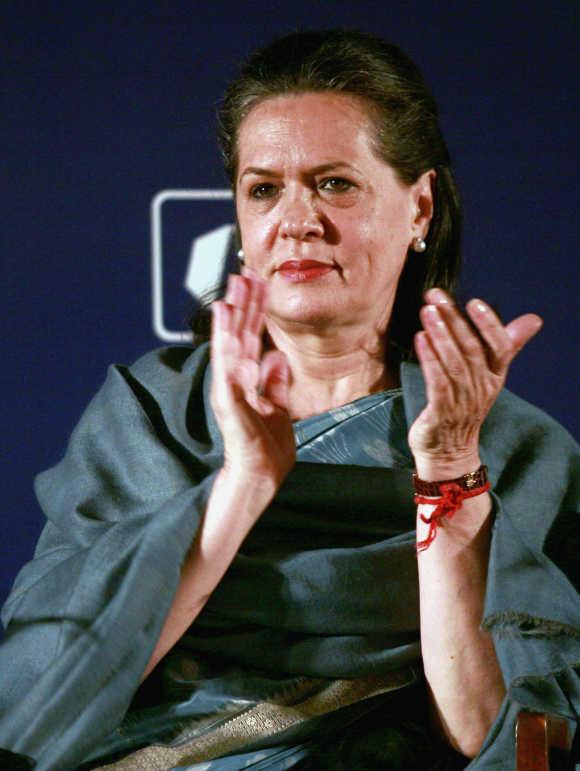
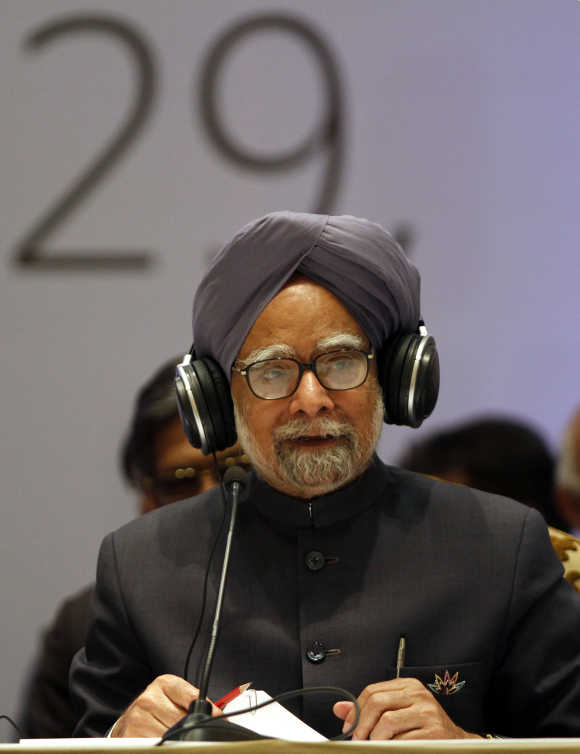
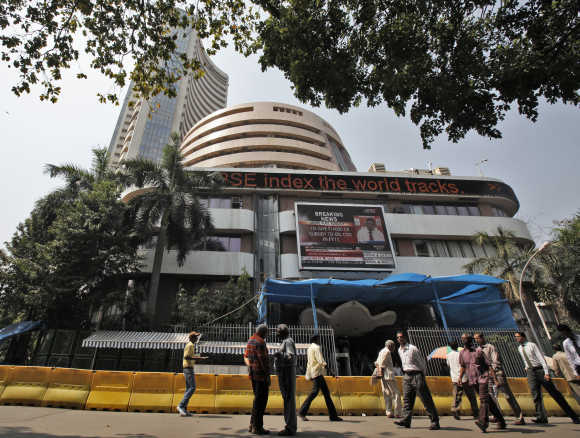
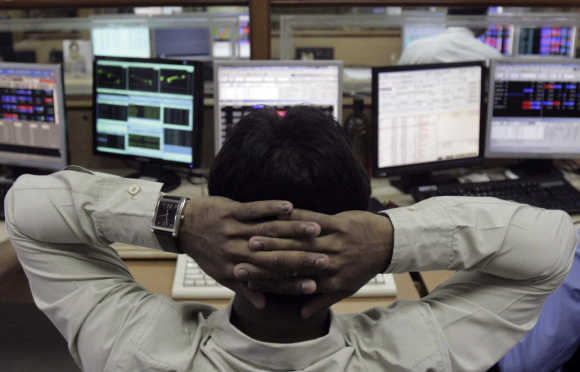
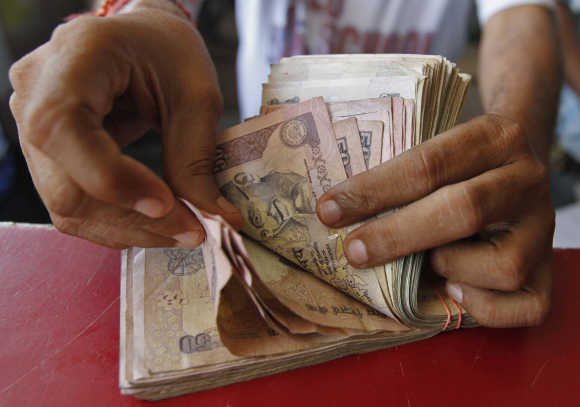

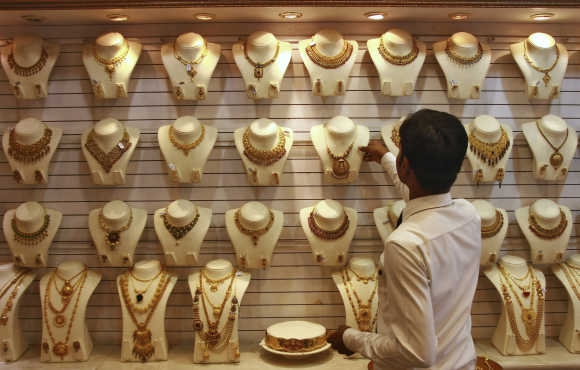
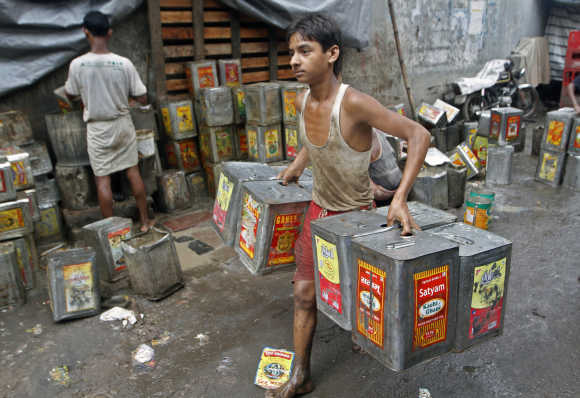

article